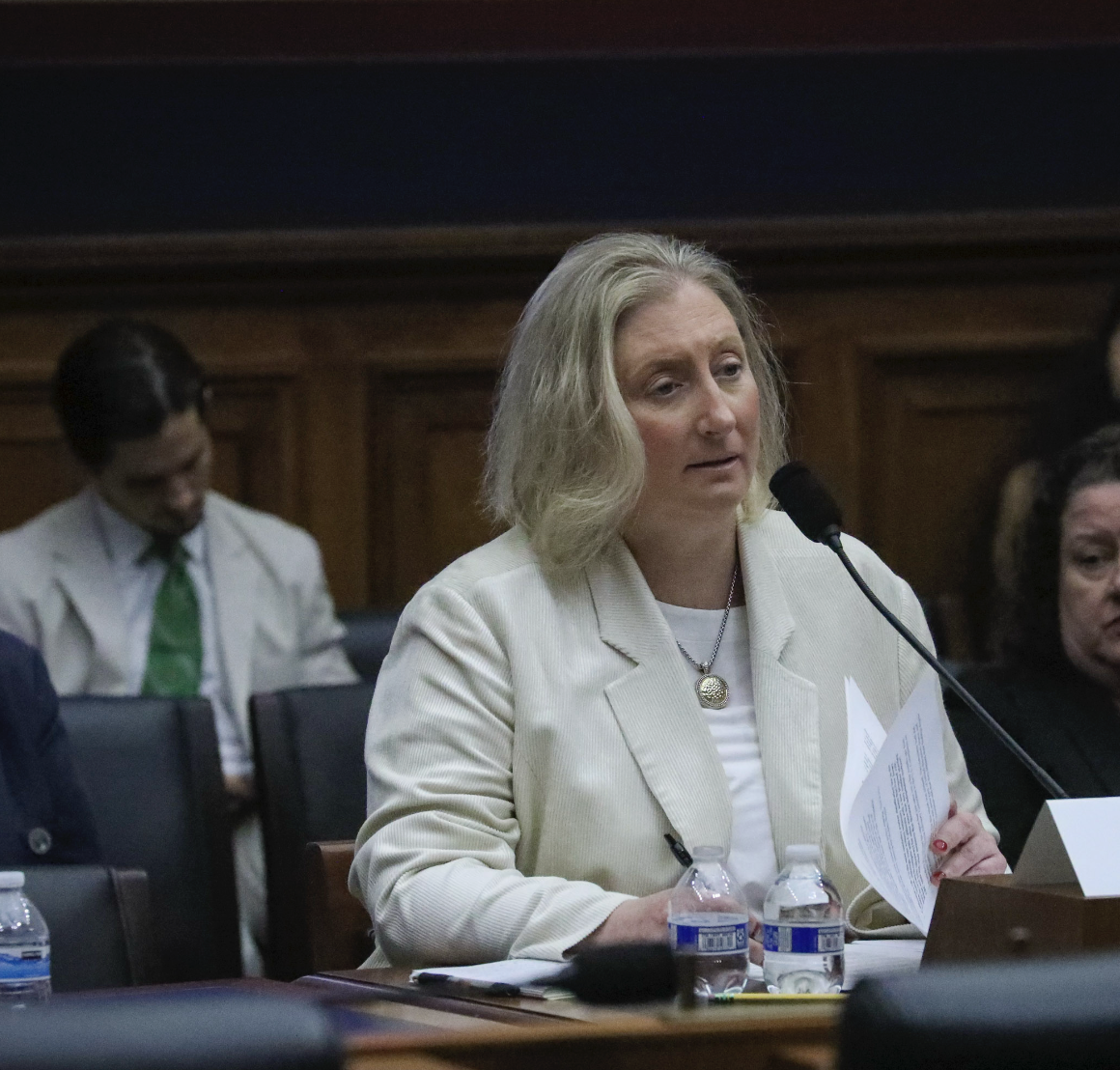Posts tagged Congress
Unions ask California to lead fight for workers at the state level
June 23, 2025 // California Chamber of Commerce was the only group that spoke in opposition to the bill. It argued the bill is preempted by the Garmon doctrine, which stops state and local governments from regulating activities protected or prohibited by the National Labor Relations Act. But, preemption, McKinnor said, was designed to create consistent protection for workers, not to shield companies from the consequences of breaking the law
House Committee Debates NLRB’s Fairness and Transparency
June 18, 2025 // Also at issue was how workers vote for or against unionization. When workers select a union, said Vincent Vernuccio, president of the Institute for the American Worker, they should be allowed to make that choice “securely and privately” and “without intimidation or coercion.” He cited the “true language” of the NLRA that says a “union must be chosen by the majority of all the employees in a unit.” Vernuccio advocated for the use of secret-ballot elections in place of card check, an organizing method in which a union gathers worker signatures.
The president of the AFL-CIO says she’s committed to the fight against Trump’s immigration policies
June 18, 2025 // We’re deploying strategies in the courts, in Congress. We have pension fund investments that we know can be used strategically as leverage as well. We’re the only institution in the country that has a network of local labor bodies in every state and every city in this country. We have access to working people and workplaces that we can use to educate and train and activate on a moment’s notice. We [were] not going to just close up shop and move on after David’s been released. This is just the start.

Sen. Joni Ernst pushes to ban taxpayer-funded union time in One Big Beautiful Bill Act
June 16, 2025 // Approximately $160 million of your money went toward fed workers’ union time as of 2019, the last time such data was available, and Ernst (R-Iowa) has been on a quest for more recent information. Her legislation, dubbed the “Protecting Taxpayers’ Wallet Act,” would compel government unions to reimburse taxpayers for all of their taxpayer-backed activities. Rep. Scott Perry (R-Pa.) has championed the measure in the House.

Federal government reverses course on Florida union law, appeals court holds lawsuit
June 16, 2025 // An appeals court Tuesday put on hold a lawsuit that Florida filed against the federal government, after the Trump administration reversed course on a controversial 2023 state law that placed restrictions on public-employee unions. The law included a series of restrictions, including preventing most public employees from having dues deducted from their paychecks and requiring unions to be recertified as bargaining agents if fewer than 60% of eligible employees pay dues. The lawsuit deals with interplay between the state law (SB 256) and a longstanding federal law designed to ensure that transit workers’ collective-bargaining rights are protected before federal transit money is provided to local agencies.

Commentary: Workers Need More Transparency from Unions
June 5, 2025 // We’re not labor experts or lawyers. We’re too busy doing our day jobs. Unions should be required to disclose a lot more information. Things such as who funds unionization drives, which other unions or groups they’re affiliated with, and whether they’re paying workers to push unionization. This information could have changed the outcome at my old Trader Joe’s store. The best system would equip workers with the facts well before they’re expected to vote. If workers unionize, unions should be required to more regularly provide some of this timely information. Additionally, the Department of Labor should publish the data more often and in a more user-friendly format. For instance, at my old store, we didn’t know that the union officers would be taking salaries from the union — we only found out 18 months later, and we had never agreed to them, which upset many of my co-workers who had supported unionization.
US judge blocks Trump from nixing union bargaining for TSA officers
June 4, 2025 // -A federal judge on Monday said the administration of President Donald Trump likely broke the law by stripping 50,000 transportation security officers of the ability to unionize and bargain over their working conditions. U.S. District Judge Marsha Pechman in Seattle, Washington, blocked the U.S. Department of Homeland Security from canceling a union contract covering TSA officers pending the outcome of a lawsuit by four unions challenging the move.
Op-ed: Federal correctional officers’ union targets members of congress for turning their back on law enforcement
June 3, 2025 // The billboards have been placed across the country targeting the following 10 members of Congress: Rep. Ken Calvert, R-Calif.; Sen. Shelley Moore Capito, R-W.Va.; Rep. Juan Ciscomani, R-Ariz.; Sen. Josh Hawley, R-Mo.; Rep. Clay Higgins, R-La.; Rep. Mike Johnson, R-La.; Rep. David Joyce, R-Ohio; Rep. Riley Moore, R-W.Va.; Sen. Thom Tillis, R-N.C.; and Rep. Randy Weber, R-Texas.
Independent Contractors Take Center Stage for ‘Empowering the American Worker’
May 27, 2025 // However, expert witness Dr. Liya Palagashvili showed data of the deliberate harm done through California’s law AB5 and its ABC test that is also embedded in the federal Protecting the Right to Organize Act (PRO) Act and other statewide legislation seeking to restrict the work of independent professionals. Now, these results are causal, meaning we can definitely say that ABC tests cause these negative outcomes. No other studies to date have found positive employment effects from these laws. The research shows that restrictive ABC tests do not create more work opportunities. They eliminate both independent and W-2 jobs.

Kim Kavin: The Tangled Web
May 23, 2025 // I know how most writers’ minds work. I have a well-honed instinct for spotting a thread I should pull on because the facts might be tangled up in some kind of web. This hyperlink in Newsweek was a different kind of typo. The words “2020 analysis” actually did lead to a report about independent contractors—one that was written not in 2020, but instead in 2009. A wrong hyperlink of that nature is a red flag to any decent editor that there’s probably an association in the writer’s mind between the words in the hyperlink and where that link goes. Any experienced editor will pull on that thread to figure out if there’s an actual problem with the facts.
